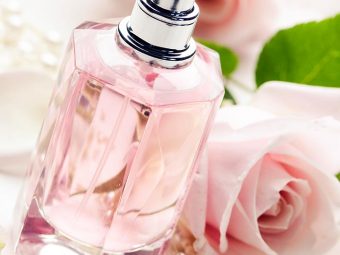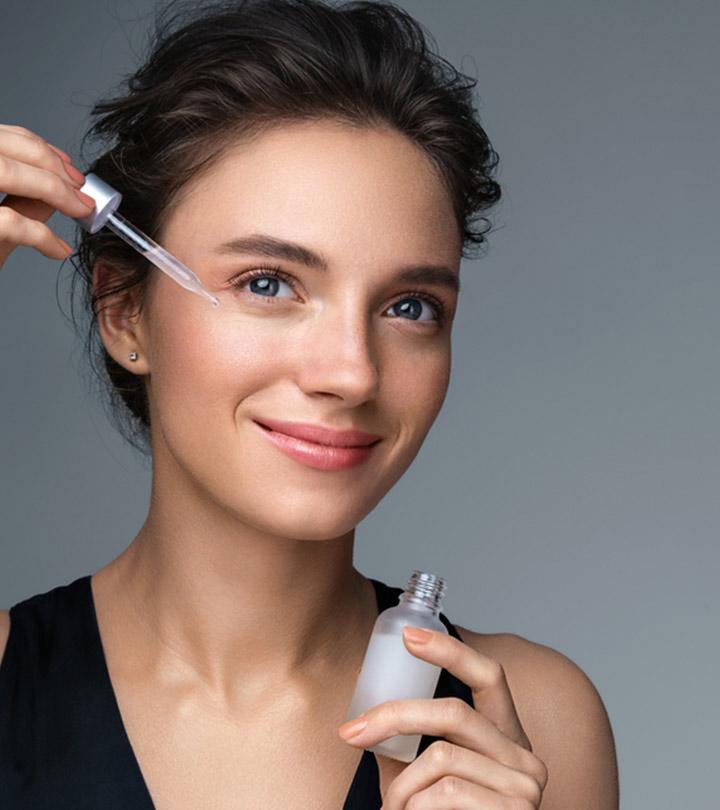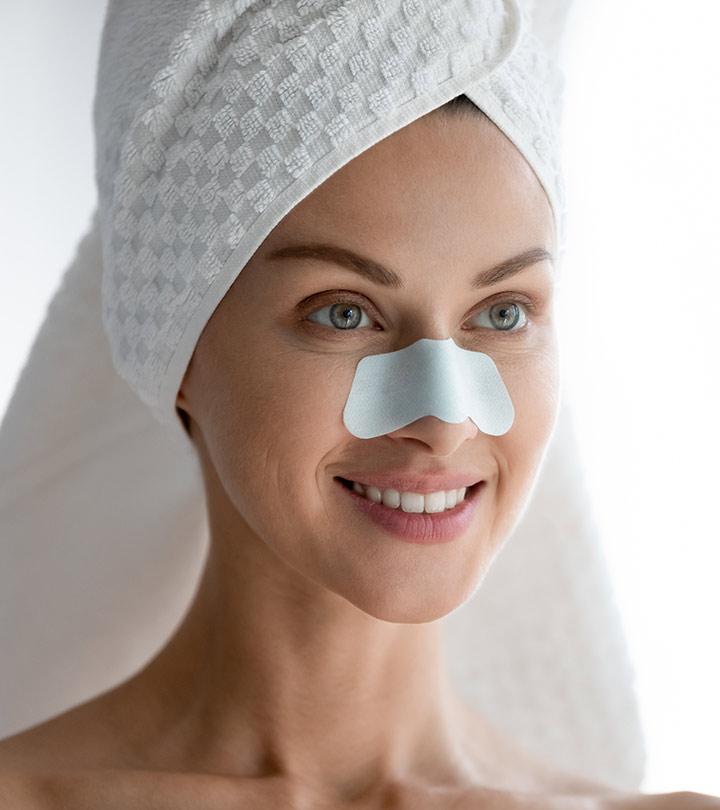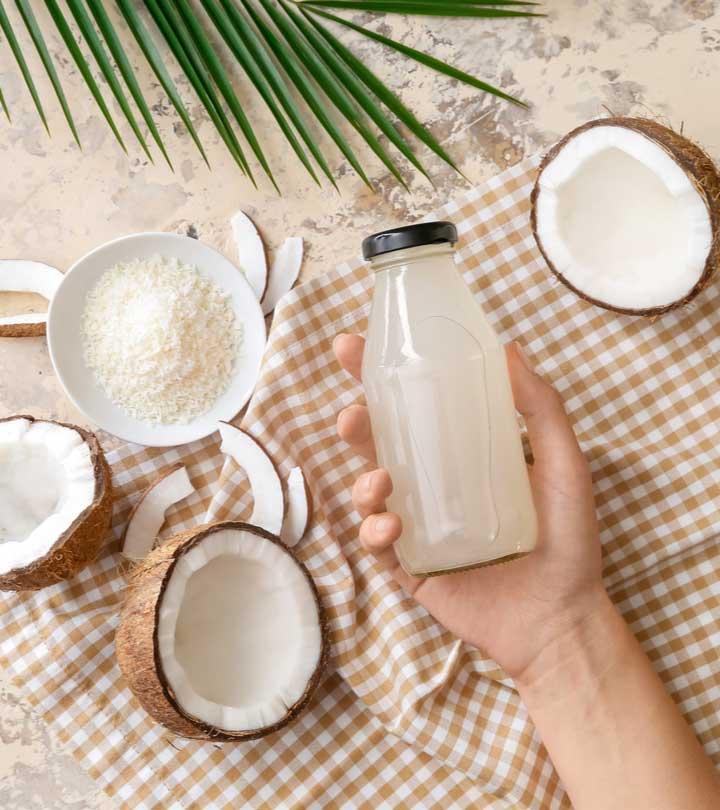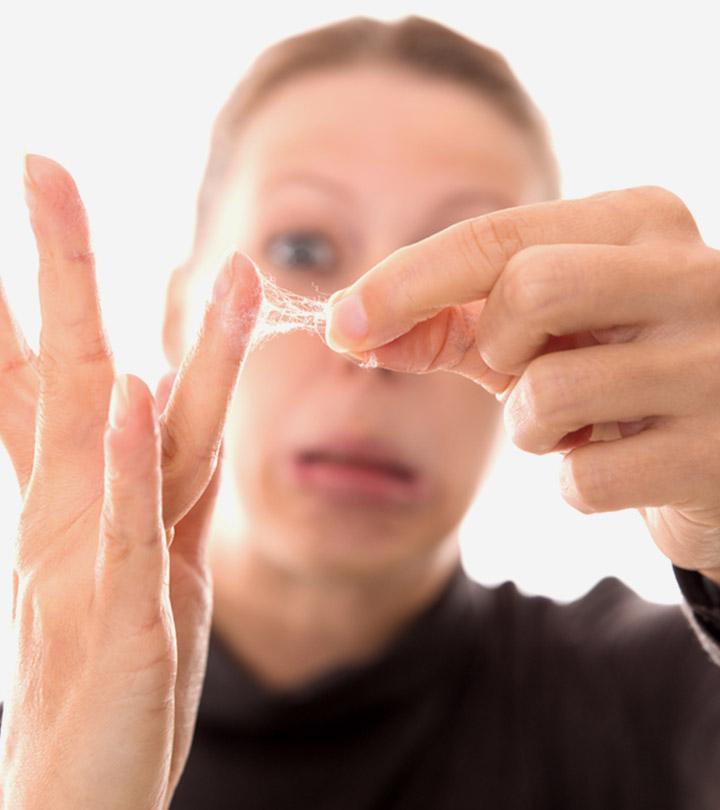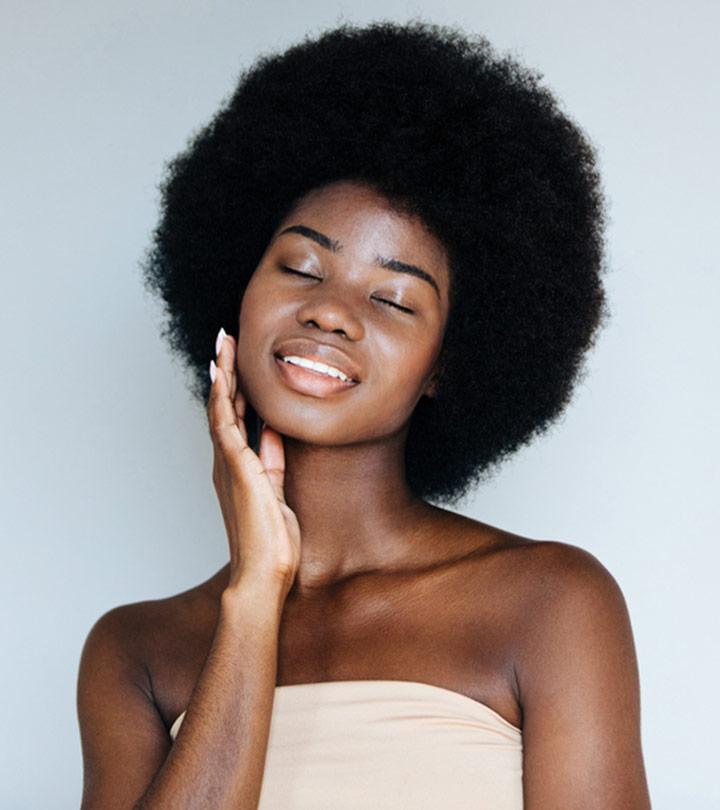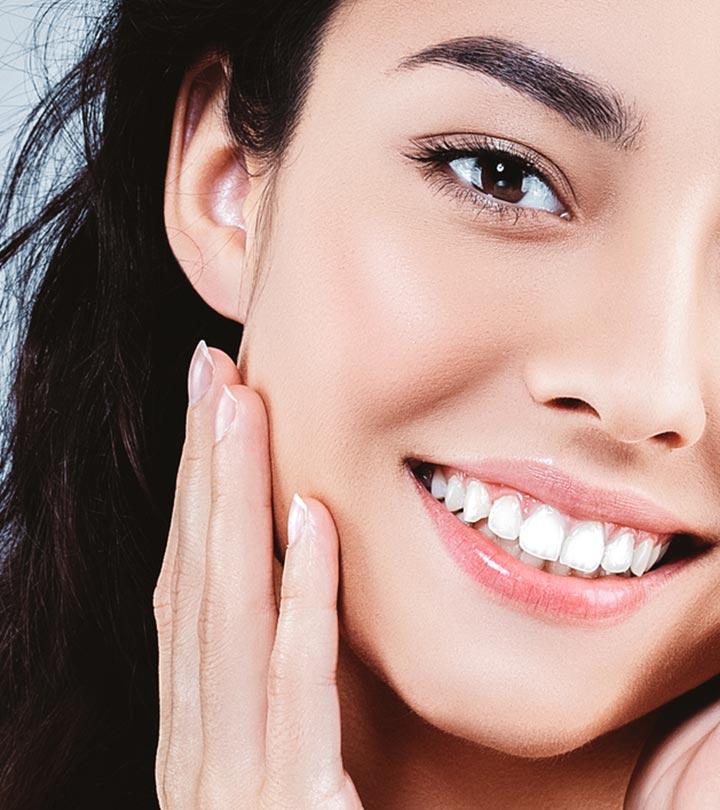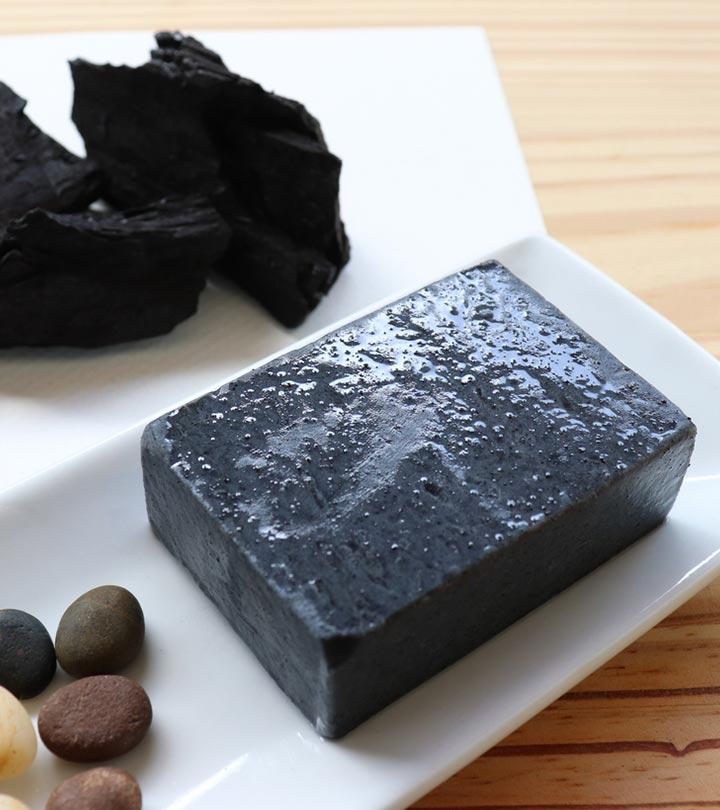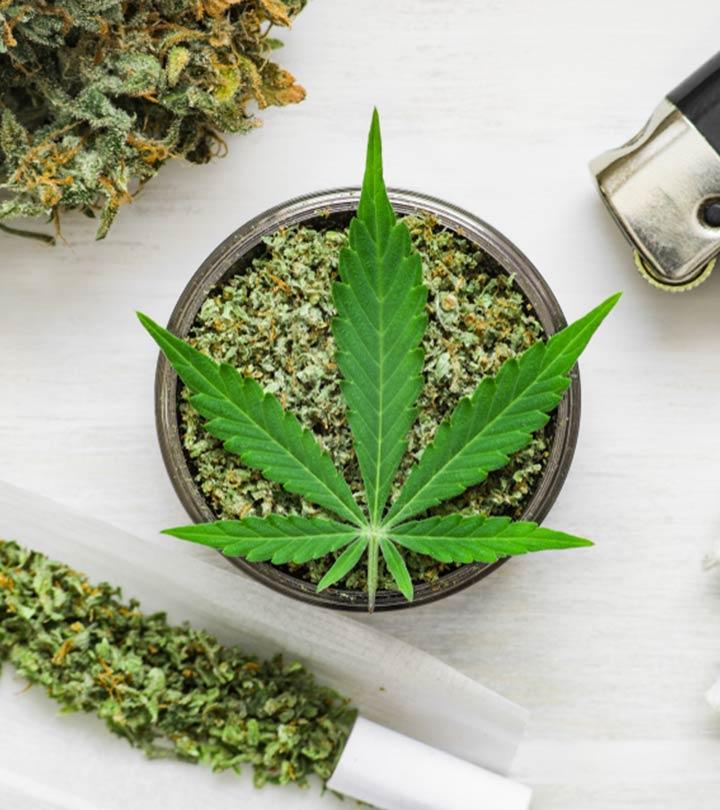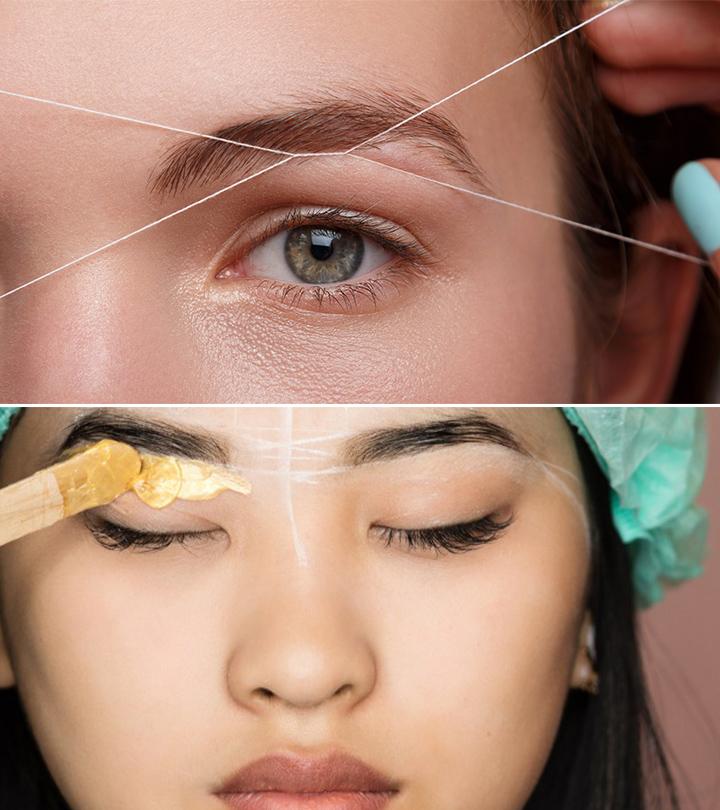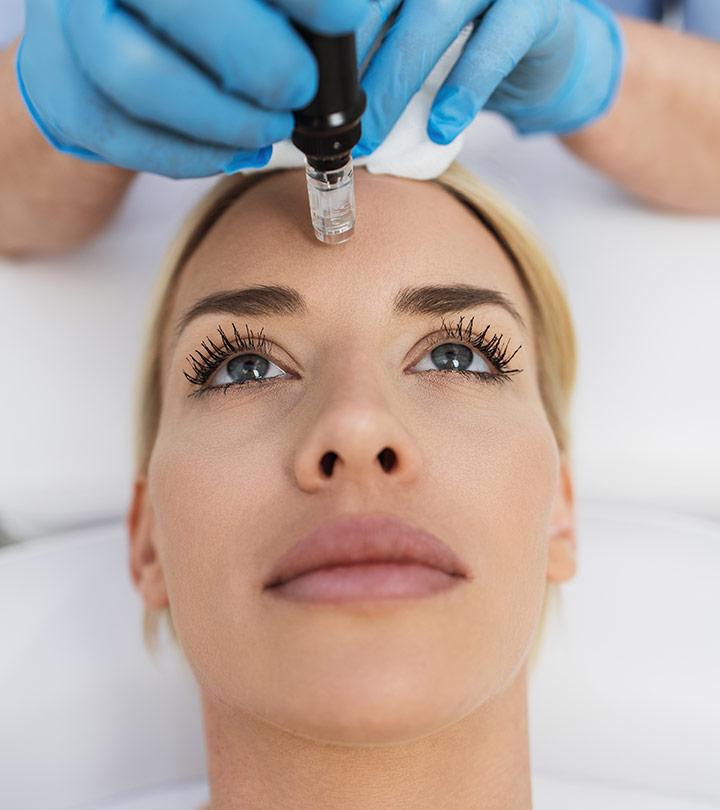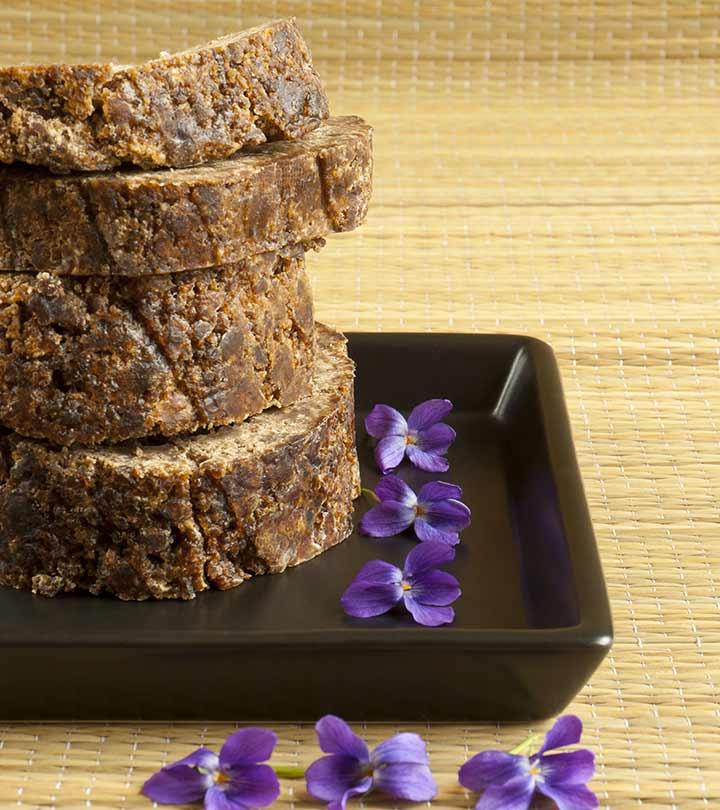Eau De Parfum Vs. Eau De Toilette: What Are The Differences?
Understand the difference and choose the one that best meets your needs.
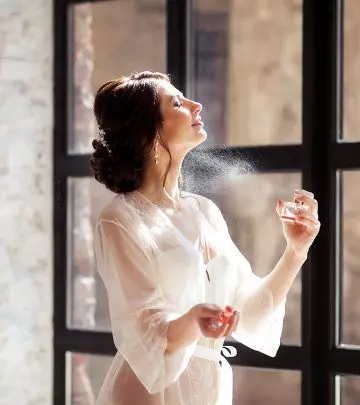
Image: Shutterstock
Eau de parfum vs. eau de toilette is a much-needed discussion to determine which one suits you the best. Both are two different foundational categories of fragrances. Since they are often differentiated based on their longevity and intensity, understanding the differences can help you pick the right one for the right occasion. Read this article to learn more about the differences between eau de parfum and eau de toilette.
In This Article
Difference Between Eau de Parfum And Eau de Toilette
Eau de parfum and eau de toilette differ in their fragrance oil and alcohol concentrations. The fragrance and oil concentration of eau de toilette is between 4-8%, while the concentration of eau de parfum is between 8-15% (1). As a result, eau de toilettes are lighter and fresher than eau de parfums, which have denser and richer fragrances. The fragrance and oil concentration determines how long the product and smell will last.
According to a survey conducted by YouGov comprising 25,021 US adults, 50% of respondents felt that people who wear fragrance tend to use it too much, while 5% thought they use too little. Approximately 27% believed the amount used was just right, while 18% were unsure.
People who believe they are not using enough fragrance might find eau de parfums beneficial due to their richer and more concentrated scent.
 Trivia
TriviaThis may make you wonder which one lasts longer – eau de parfums or eau de toilettes? Let’s find out.
Do Eau de Parfum Last Longer Than Eau de Toilette?
Yes, eau de parfum lasts longer than eau de toilette. This is because of the high concentrations of oil and fragrance.
The longevity of the perfume depends on the fragrance concentration and notes. Notes are classified into top, middle, and base notes, depending on their fragrance, diffusion rate in air, and volatility (2). The top notes fade first, the middle notes last a little longer, and the base notes last the longest.
In the following sections, we have answered common questions related to eau de parfums and eau de toilettes to help you understand their differences.
Do Eau de Parfum And Eau de Toilette Smell The Same?
No. They may smell similar only if they have the same fragrance notes. It is because of the different fragrance concentrations. The chemical makeup of eau de parfums differs from eau de toilettes, and therefore, the fragrance intensity will not be the same. Eau de parfums release a higher concentration of fragrance in a single spritz than eau de toilettes. Hence, even if both have the same fragrance notes, they will smell a bit different.
Tabatha Farnel, Fragrance Expert, adds, “Many fragrance brands change not only the concentration of perfume oils between Eau de Toilette and Eau de Parfum, but also the individual notes that compose each fragrance. For example, in the same line of fragrances, the Eau de Toilette might be more citrus-leaning while the Eau de Parfum could be more woody leaning.”
Do Eau de Toilettes And Eau de Parfum Ever Expire?
Yes, most perfumes have a shelf life of three to five years. The shelf life may vary depending on the quality of ingredients and the preparation method. Since eau de toilettes have a higher alcohol concentration, they will age slower than eau de parfums. Alcohol-free fragrances lose intensity faster.
The storage also affects the shelf life. Exposure to light, hot temperatures, and oxygen can deteriorate the fragrance. Thus, to increase the shelf life, store the fragrances in a dark, cool place.
When Should I Use Eau de Toilettes And Eau de Parfums?
It depends on the environmental factors as they modulate the sense of smell (3). Heat makes the perfume last longer and travel farther.
As eau de toilettes have a lighter fragrance, it is better to wear them during hot summer months or daytime. The lighter and refreshing scent quality makes them a better choice for everyday wear. On the other hand, eau de parfums are good for colder months or nighttime. Since scent dissipates faster in the cool evening air, you will need an intense fragrance.
Maitê Serra, a blogger known for her fragrance reviews and insightful musings, provides her perspective on Chloé – Nomade (EdT) comparing it to the original one. She shares, “I still find the original a bit more striking, and more interesting from the artistic point of view… yet, the Eau de Toilette is lovely, and, for daily wear, I might choose it over the Eau de Parfum (i).”
 Did you know?
Did you know?Also, it is crucial to wear your fragrance correctly for the desired effect.
How To Apply Eau de Toilettes And Eau de Parfums
Applying a perfume requires a little more skill and finesse. Always focus on your wrists, neck, chest, behind the knees, ears, and inner elbows. These are warm spots of your body and help diffuse the scent. You may spray, dab or swipe the fragrance but never rub your wrists as it may break down the oils and scent.
To blend the fragrance with your natural scent for a more subtle effect, spray the perfume in the air and walk into it. You can also dab a little on your clothes. However, some perfumes may stain.
Tip: The fragrance will last longer on hydrated skin. So, apply a moisturizer before spritzing perfume.
Now that you know of the major differences between the two, which one would you choose? If you are still confused about it, read the next section.
Eau de Toilette Or Eau de Parfum: Which One Is Right For Me?
It depends on your preferences. If you want a long-lasting and intense fragrance, go for eau de parfums. On the other hand, if you want a subtle fragrance for day-to-day wear, eau de toilettes are the best. Moreover, eau de toilettes are cheaper than eau de parfums.
Another important factor is your skin type. The scent formulation can react differently on different skin types and may have different effects. For instance, someone with dry skin may need a higher concentration of fragrance to get the desired scent. Also, if you have sensitive skin, eau de toilettes may irritate it due to their high alcohol concentrations.
Eau de parfums and eau de toilettes are two foundational categories of fragrances. Understanding the difference between eau de parfums and eau de toilettes will help you determine which one suits you the best and when to wear them. They both differ in their alcohol concentrations and fragrance oil content. Even if they have the same notes, the scent will not be the same. It is better to wear eau de toilettes during summer and daytime, while you can wear eau de parfums during the cold season and nighttime.
Frequently Asked Questions
Why is eau de parfum more expensive?
Eau de parfum is more expensive due to the higher concentration of fragrance in it.
Is eau de toilette perfume for man or woman?
Eau de toilette is suitable for both men and women.
How many times should you spray eau de toilette?
Spraying eau de toilette 3-4 times per use is enough.
Key Takeaways
- While eau de toilette has 4-8% concentration of fragrance and oil, eau de parfum 8-15% concentration of the same.
- Owing to the high concentrations of oil and fragrance, eau de parfum can last longer than eau de toilette.
- Before spritzing any perfume, it is important to apply a moisturizer as the fragrance lasts longer when the skin is hydrated.
The following video discusses all that you need to know about eau de toilette, colognes, and eau de parfum. You will also get details about their longevity and price range to help you make an informed decision. Check it out.
Personal Experience: Source
StyleCraze's articles are interwoven with authentic personal narratives that provide depth and resonance to our content. Below are the sources of the personal accounts referenced in this article.
(i) Fragrance Review: Chloé – Nomade (EdT)https://teascentedlibrary.wordpress.com/2020/02/20/fragrance-review-chloe-nomade-edt/
References
Articles on StyleCraze are backed by verified information from peer-reviewed and academic research papers, reputed organizations, research institutions, and medical associations to ensure accuracy and relevance. Read our editorial policy to learn more.
- Essential Oils as Natural Sources of Fragrance Compounds for Cosmetics and Cosmeceuticals
https://www.ncbi.nlm.nih.gov/labs/pmc/articles/PMC7865210/ - Biological Importance of Essential Oils
https://www.intechopen.com/chapters/68027 - Changes of pressure and humidity affect olfactory function
https://pubmed.ncbi.nlm.nih.gov/17901967/
Recommended Articles
- Top 15 Victoria’s Secret Perfumes For Women
- 11 Best Lancôme Perfumes That Are Irresistibly Good For Women
- 7 Best Coach Perfumes For Women That Hit The Right Notes In 2021
- These 9 Best Marc Jacobs Perfumes Are Positively To Die For!
- 7 Best Indie Perfumes Of 2021 Loved By Women
- Elevate Your Senses With The 10 Best Valentino Perfumes Of 2021









